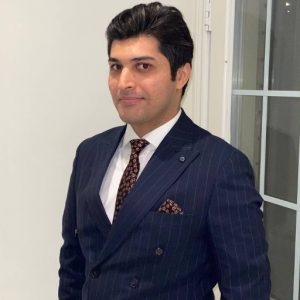Mohammad Hashemi is a Work Study Student in the Digital Humanities and Cinema Iranica projects. Mohammad is a Ph.D. Student, Mechanical Engineering. Mohammad received his Bachelor of Science degree in Chemical Engineering from Iran’s Sharif University of Technology in 2013. During his pursuit of a M.Sc. degree, his educational background led him to collaborate with Dr. Felicelli and Dr. Eshraghi on numerical modeling related to dendritic solidification at the University of Akron, USA, from 2014 to 2016. In the autumn of 2021, Mohammad became part of CACT, assuming the roles of research assistant and Ph.D. candidate supervised by Dr. Dolatabadi. His overarching objective is to devise a Lagrangian-Eulerian model for investigating atomization mechanisms in thermal spray. His primary research enthusiasm centers around formulating innovative computational models for simulating interfacial phenomena, combustion, and dendritic solidification.
“I have had the privilege of being a work-study and graduate student at the Elahé Omidyar Mir-Djalali Institute of Iranian Studies since September 2023. During this time, I have made significant contributions to the Cinema Iranica Encyclopedia Compendium through archival research and extensive editing.
Working as part of the team at the Institute has been an honor. I am particularly proud of the professional academic communication, research abilities, and brainstorming skills I have developed throughout this project. These experiences have underscored the importance of collaborative academic endeavors.
Moreover, my tenure at the Institute has personally enriched me in various ways. I have honed critical skills such as archival research in cinema and poetry, teamwork, and publication. These competencies have equipped me with the professional communication and research skills necessary for my future career endeavors. Combined with my other experiences, my time at the Institute has empowered me to efficiently communicate and coordinate team-based projects, thereby enhancing productivity and organizational effectiveness.
In summary, the Institute serves as an invaluable hub for learning and community, nurturing research and communication skills among its members.”
